A simple guide to the UK election result
- Published
Election night in two minutes
The vote is in, and it's ... well, the British don't really know what to make of it yet.
The UK general election, to choose all 650 members of Parliament, has produced a bit of a surprise result in which no-one is the clear winner.
Confused? Here's what you need to know.
In a nutshell, what's the result?
The ruling Conservative Party (nicknamed the Tories) thought it was going to increase its numbers in Parliament, but has instead lost seats - and its slim majority; it held 330 seats before the election (326 is the magic number for a majority).
Instead, the opposition Labour Party has won back many seats.

To cap it all off, Prime Minister Theresa May didn't need to call this election - she did so because she thought she'd win a landslide. The result is being seen as a major defeat for her.
What happens next? And what's a 'hung parliament'?
Remember that the UK is still a monarchy of sorts. There's lots of tradition involved.
This scenario is what Brits call a "hung parliament" - which just means that no party has a clear majority by itself.
Coalition or minority governments are fairly common in European countries like France, Germany, or close neighbour Ireland - but some in Britain tend to see them as unstable.
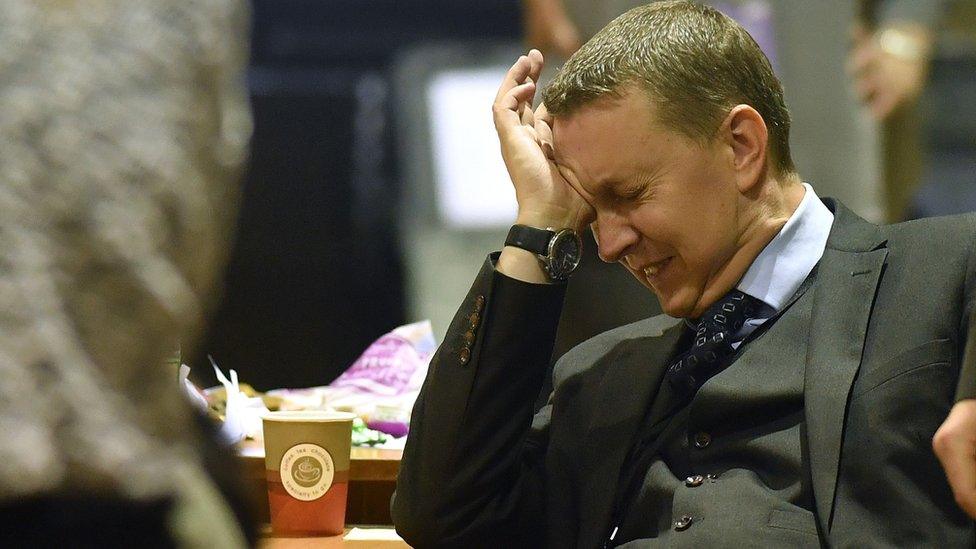
An official pictured waiting for ballot boxes in Boston (UK), on election night
What happens next is that the largest party asks permission from the Queen to form a government. The monarch will never refuse this request - it's just a tradition in the constitutional monarchy that is the United Kingdom.
Theresa May visited the Queen just after noon, and the Conservatives are going to attempt to form a government relying on the backing of the Democratic Unionist Party from Northern Ireland.
If they can't, then Labour, the opposition, might try to put together a minority government. Or - always a possibility - there could be another election.
Ok. Does this affect Brexit? Will Britain still leave the EU?
In the short term, this is a bit of a problem.
Negotiations for the UK leaving the EU are due to start on 20 June, just 11 days after the election. It's possible the UK won't even have a government in place by then.
Even if there is one, Theresa May's whole reason for calling the election was to stop "political game-playing" from other parties and give her the political clout to push through Brexit issues.
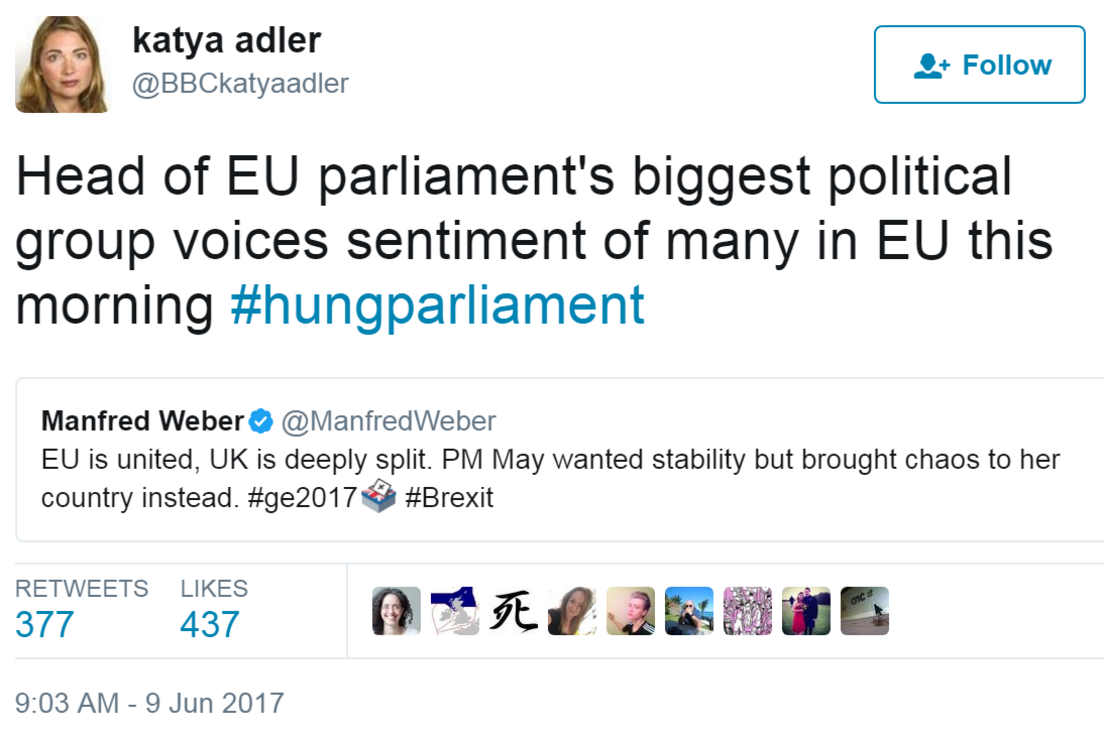
Instead, she has less power, and will need other parties to back her to even form a government at all.
The two largest parties both back Brexit, it's just a question of detail. The entire process is less stable now.
But, even if there is a delay in getting started, Brexit negotiations will happen - sooner or later.
So, this is bad for the prime minister?
By the morning rush hour, Theresa May was "holed up inside" her official residence, our political correspondent said, "her political gamble having gone so badly wrong".
UK Foreign Secretary Boris Johnson refused to confirm whether he still supported the prime minister
Even before the last few results came in, chatter had already started about resignation - which is not uncommon in the UK.
Her main opponent, Labour leader Jeremy Corbyn, declared she had "lost votes, lost support and lost confidence", and: "I would have thought that's enough to go, actually."
Theresa May reportedly says she'll stay on, regardless. But talk of her future prospects is everywhere.
What about Jeremy Corbyn?
Jeremy is sometimes compared to US politician Bernie Sanders. He's an unusual party leader who has pulled off a personal victory here.
The lifelong socialist only put his name down for the Labour leadership because no other left-winger wanted to. Bookies gave him odds of 200/1 - but he won anyway, thanks to ordinary members' votes.
BBC political correspondent: Success for Corbyn, total disaster for May
But the bicycle-riding, gardening, socialist leader didn't have the support of other Labour MPs - who almost immediately tried to push him out. He survived.
And while Labour technically lost this election, they made big gains over the 2015 vote. Anecdotal evidence suggests the youth vote turned out for Labour in a big way.
Owen Smith, who ran against Mr Corbyn for the leadership, said: "I was clearly wrong in feeling Jeremy wouldn't be able to do this. He proved me wrong and lots of people wrong, and I take my hat off to him."
Another election? How often do the British vote?
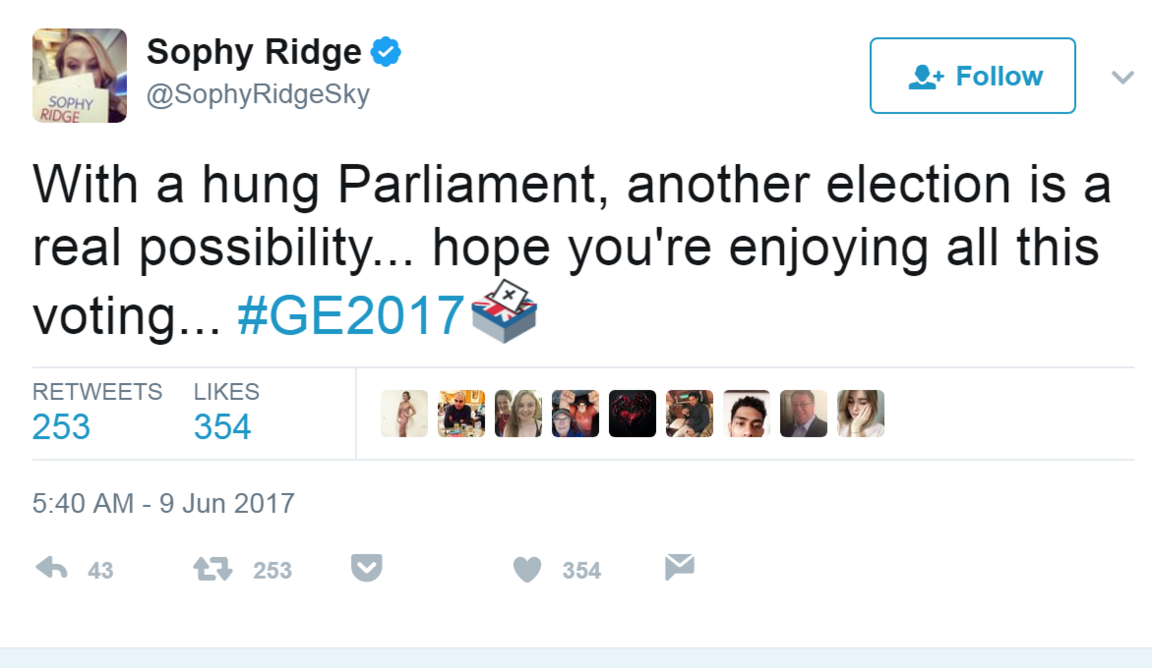
An election could take place in a matter of weeks, but only if the negotiations break down and no-one can form any kind of government.
It might seem like there's a lot of politics right now, but that's because:
There was a 2014 vote on Scottish independence from the United Kingdom
There was a 2015 general election, as scheduled
The winning party had promised an EU Brexit vote
When the "leave" campaign won Brexit, the prime minister resigned, so we got a new one
The new prime minister called a snap election - this one
In theory, a government has a set five-year term, so the next election is due in 2022.
But - as we've seen - an unexpected election can be called at any time if enough MPs agree to it, or if the government collapses.
What about Scottish independence?
The Scottish National Party (SNP) had suggested the possibility of another referendum on Scottish independence, in the wake of the Brexit vote (Scotland mostly wanted to stay in the EU).
They entered the election campaign in a very dominant position, holding 56 of the 59 seats in Scotland - and were expected to lose some seats, which they did, to a Conservatives surge.
Deputy First Minister John Swinney admitted that the possibility of a second referendum on independence had played a "significant" role in the result.
Having lost 21 seats as a result, it's very unclear what happens next with the SNP's campaign for independence.
Erm... why are Elmo and an intergalactic space lord at the count?
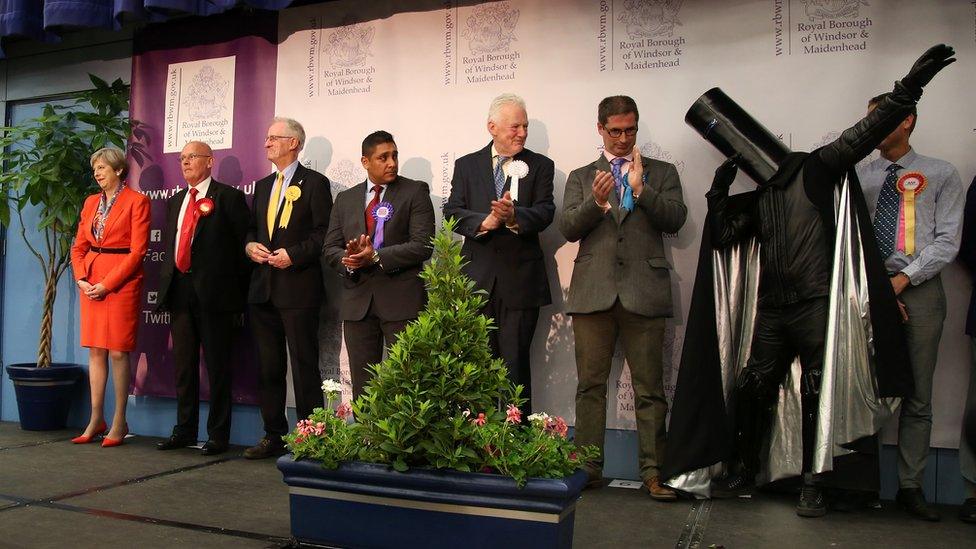
The prime minister kept her distance from intergalactic space lord at the count
The UK doesn't have transfers or any kind of proportional representation, so it's quite hard for independents or small parties to succeed.
But - much to the delight of photographers - some candidates run for sheer spectacle, often in high-profile seats against party leaders or prime ministers.
This year's candidates included Lord Buckethead, real name unknown, Elmo (not, we believe, of Sesame Street), and Mr Fishfinger Man.
Oh, and the Monster Raving Loony party has been campaigning consistently since the 1980s.
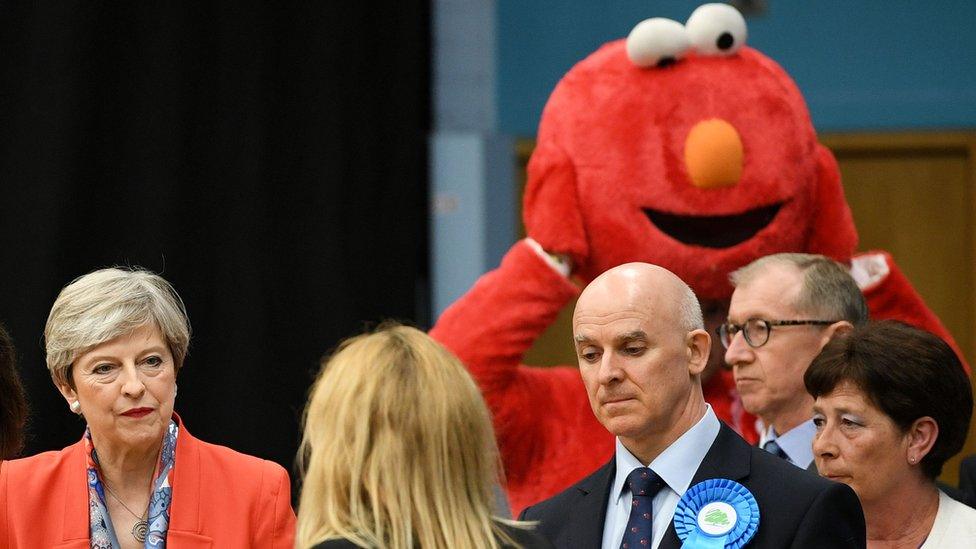
A weary Elmo removes his head after losing out to the sitting PM
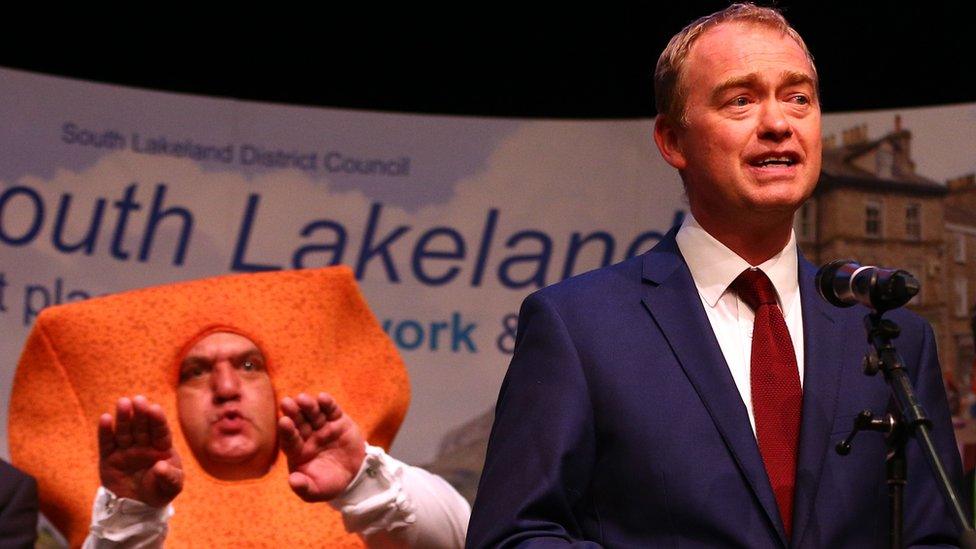
Mr Fishfinger lost out to the leader of the Liberal Democrats
Where can I read more in-depth material?
Want to read more? The BBC is covering this election and all the developments in depth.
Follow the latest updates on our live news page
Click through for full results on all 650 constituencies here
Check our main election index for at-a-glance latest news
- Published9 June 2017
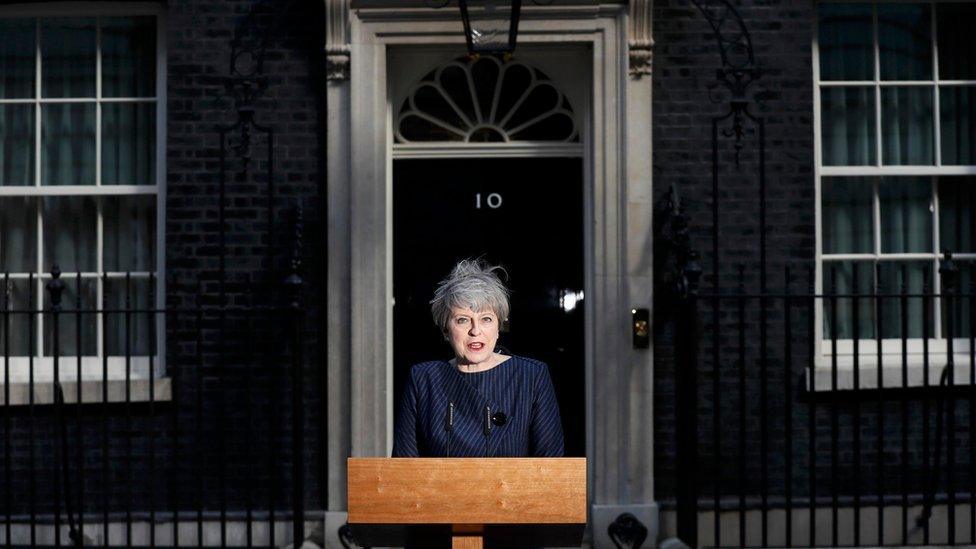
- Published9 June 2017
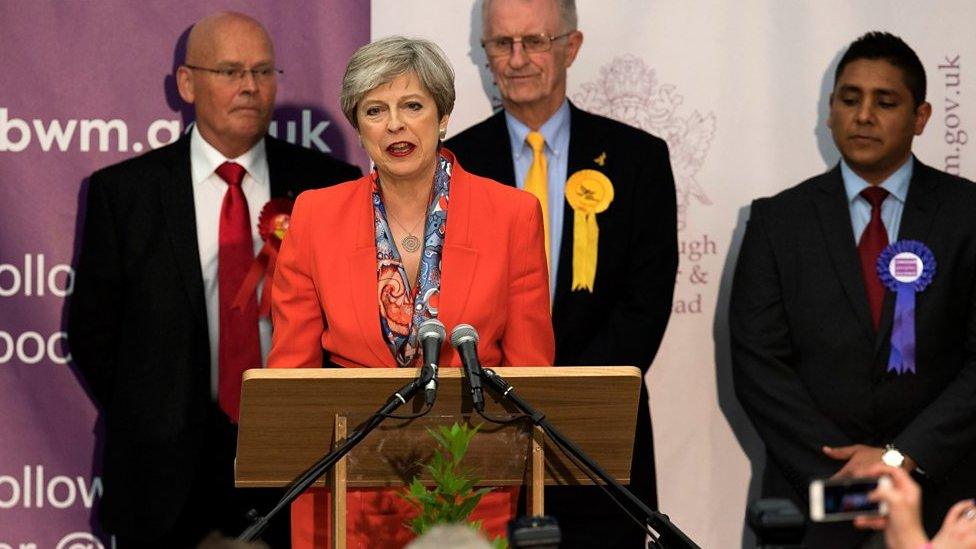
- Published9 June 2017